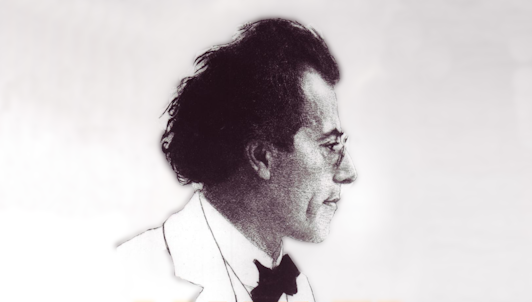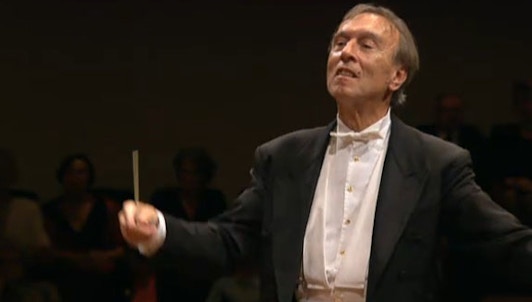At the end of this concert, as soon as Claudio Abbado lowered his baton, his interpretation of Mahler's Second Symphony became a legend.
An invisible thread runs between Claudio Abbado and the Second Symphony, "Resurrection" by Gustav Mahler. It is with this work that he made his debut with the London Symphony Orchestra and the Wiener Philharmoniker in Salzburg at the age of thirty-two and it is this symphony that he decides to conduct in August 2003 in Lucerne, with the new orchestra that he helped revive, the Lucerne Festival Orchestra.
An Italian revived it, an Italian had founded it: Arturo Toscanini, who had founded the Lucerne Festival in 1938 to compete with Salzburg, had given this event an orchestra that was to play under the direction of the greatest conductors. After falling by the wayside in the nineties, the new Lucerne Festival Orchestra was reborn in August 2003 like the phoenix reborn from its ashes under the magic baton of Claudio Abbado.
In the superb concert hall, designed by the architect Jean Nouvel, the stars of the most prestigious formations as well as the leading soloists perform. Among many others one may recognise: Emmanuel Pahud, Sabine Meyer, Renaud and Gautier Capuçon, Natalia Gutman, the Hagen Quartet and Marie-Pierre Langlamet. The simple fact of having succeeded in assembling all these stars is a miracle in itself, the aim is now to get them to play together... And that takes the talent, experience and magnetism of a Claudio Abbado to succeed.
There was no reason for concern: as soon as the applause died down, the interpretation of Mahler's Second Symphony they performed as a single man, went down in legend. Fortunately, cameras and microphones were there to ressuscitate the "Ressurection."





